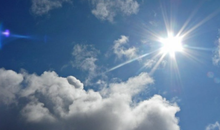
 Flash News
Flash News
Ndahet nga jeta tragjikisht në moshën 28-vjeçare ylli i Liverpool, Diogo Jota
Posta e mëngjesit/ Me 2 rreshta: Çfarë pati rëndësi dje në Shqipëri
Ceno Klosi with over 800 stolen votes, Balluku finds the reason is the tiredness of the counters
"Fast & Furious" in the former Block, police chase an Audi Q8, 4 cars collide
Car hits two tourists on a motorcycle in Fushe Arrëz, one of them dies
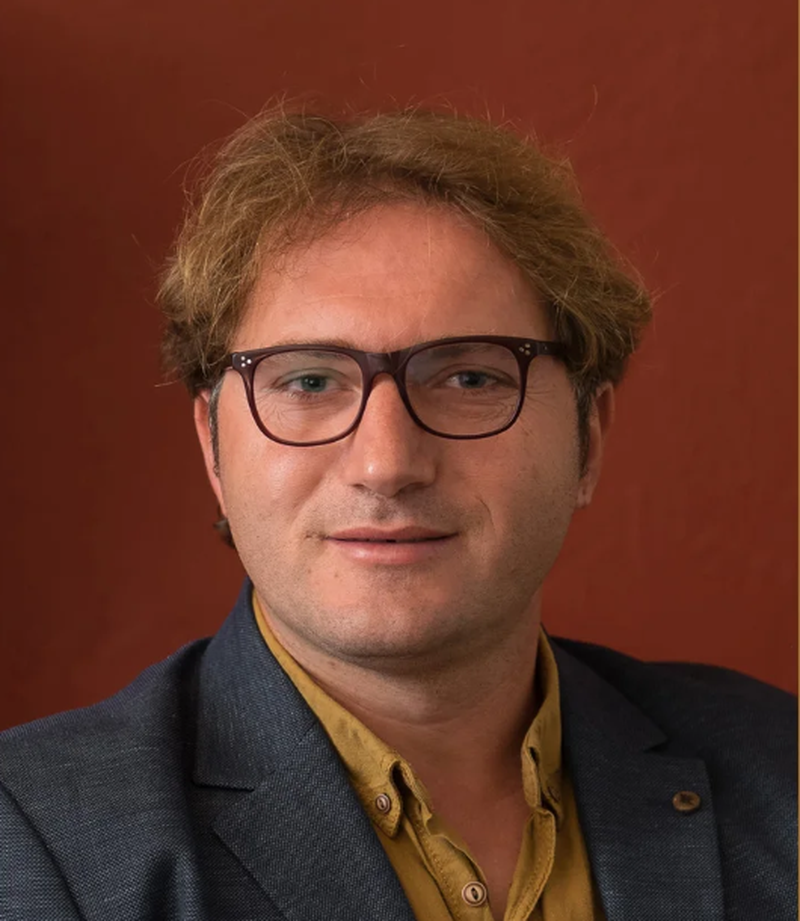
Nebi Bardhoshi | nyje.al
This Is Not About Whether the Elections Were Stolen. Today, we are dealing with a system where elections are controlled by the ruling party — the Socialist Party. It claims it has modernized, and that this modernization is why it keeps winning. In reality, it has modernized to steal more effectively and more dangerously, to control the vote illegally and outside institutional frameworks. We are witnessing a well-established and adapted system — a sophisticated model of electoral manipulation. The most recognizable version is Putin’s; other hybrid forms of this model exist within and outside the European Union.
The existence of this model is not the result of just a well-organized party. It’s a party that not only functions efficiently but also uses public resources to maintain power: public sector jobs and salaries, government tenders for firms and oligarchs, the use of private police forces (this point needs strong emphasis), and various other sectors financed by public money. This is a new type of electoral state.
There is also a separate realm: electoral crime, which plays out in two stages — before election day and on election day itself. The cases in Elbasan and the way mandates were won in Tirana, Vorë, and Elbasan are clear examples. These practices are known, widely acknowledged, though constantly relativized by projecting blame onto a supposedly corrupt society as a whole — a convenient way to dodge responsibility.
We define this system as an electoral state: a state captured by a long-governing, hierarchically organized party — one that understands party discipline and social control better than anyone and treats “democracy” as a game for power, to be played by others but never applied to itself or its cadres. Yet that alone is not enough. We are now dealing with a functioning electoral state, where party discipline and human infrastructure are fused with organized crime and extralegal power sources.
What About the Opposition?
In the regimes of an electoral state, where autocracy and oligarchy alternate roles while performing a simulation of democracy, the opposition must represent the democratic aspirations of society. Opposition parties are forced to prove they are democratic, that they defend democratic values, and that they manifest them as institutional and public practices. This obligation flows from the essence of their battle — if they are to have any real chance at change.
But in an electoral state, the opposition faces relentless fragmentation: internal fragmentation within parties and political blocs, because society itself is fragmented and demoralized. Power invests in keeping society disunited and in ensuring the opposition never unites.
Every attempt at unity seems almost impossible. This is especially complicated by the divide between new parties that have never governed and the Democratic Party (PD) or other former ruling parties. New parties feel compelled to speak in anti-establishment language in order to be seen as a genuine alternative, to say things that cannot be said from within or alongside the main opposition party.
Meanwhile, the Democratic Party presents itself as a victim of these attacks. At times, this is justified, especially when it is the sole target of attack despite not being in power. But just as often, PD uses this victimhood to deflect any criticism, labeling it as orchestrated or sponsored by the regime. Here, too, the machinery of the electoral state is at work. The ruling party, through media and administrative mechanisms, deepens divisions within the opposition by creating or facilitating platforms of intra-opposition conflict. Even when it doesn’t create these platforms, it allows public debate to exist only between new and traditional alternatives within the opposition camp. In this way, the opposition front is gradually reduced, not necessarily in numbers, but in energy and legitimacy.
What Is the Socialist Party’s Real Victory in These Elections?
It’s not the number of votes — those remain largely the same.
It’s not even the number of seats, although the result was a bitter surprise. That artificially inflated number may come to symbolize the political regime Albania is sinking into.
The real victory is something else: the collapse of the will to resist this regime. And the opposition contributed directly to this collapse.
The Democratic Party’s reaction is exactly what the electoral state anticipates — a state that has even drawn the European Union into its interpretative bubble, indifferent to democracy in Albania. PD responds with repetitive behaviors, as if we were still in the early 1990s. Meanwhile, the new parties focus more on electoral system reform than on denouncing the theft and state control of elections. They are right about the system, and that message is valid, but it is not enough.
Even as the Democratic Party protested electoral theft, it remained dominated by a hardline internal faction that positions itself as the victim while casting others as aggressors. This line, lacking popular support, struggles to expand in society. It lacks broad legitimacy because of its past in both power and opposition, not to mention its limited political language. Worse, its legitimacy has detached almost entirely from democratic values. These leaders inserted themselves into closed lists, securing safe seats — exactly the kind of behavior they should oppose.
Today, the opposition front is fragmented — not just structurally, but in its stance toward the election itself.
Is There a Way Out of This Trap?
There is only one path forward: opposition unity. I know this sounds naive and outdated, but there is no other way.
The opposition must combine internal democratization with a shared political pact.
Resignations from those who lost the elections should be just the first step. Not because they failed to win — critics will say: “Aren’t you admitting the elections were stolen and controlled by an electoral state?” Of course, we are — and we stand by that.
But those who lost have responsibilities — not because they’re uninformed about how this system works, but because they played it safe, securing their seats in parliament. That alone warrants accountability.
More importantly, they must show they believe in democratic values and that they are willing to take responsibility. If not, each party will continue shrinking. Most importantly, the opposition must come together and sign a pact — a new social and political pact focused on restoring democracy.
This pact does not have to be ideological — it simply needs to be an agreement for a fair electoral system.
It should include the formation of a technical government with one goal only: reforming the electoral system.
This reform must rest on three pillars:
-
Guaranteeing free and fair elections;
-
Building a representative and stable electoral framework;
-
Establishing a legal and electoral system that prevents any party or oligarchy from capturing the state and turning it into an electoral state.
Because in Albania, this is precisely what we are living in:
A regime where the game of democracy exists only as opposition theater, controlled by a machine that keeps power tightly in its grip and renders real debate meaningless.
Latest news

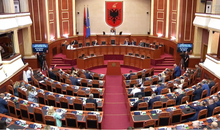
Democratic MP talks about the incinerator, Spiropali turns off her microphone
2025-07-03 10:39:24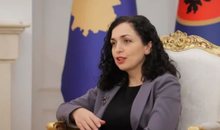

Ndahet nga jeta tragjikisht në moshën 28-vjeçare ylli i Liverpool, Diogo Jota
2025-07-03 10:21:03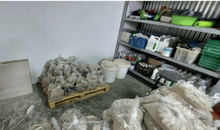
Cocaine trafficking network in Greece, including Albanians, uncovered
2025-07-03 10:10:12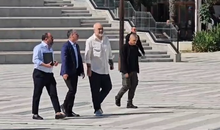
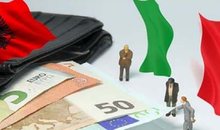
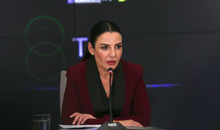
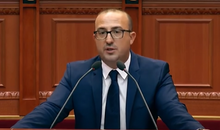
Korreshi: Election manipulation began long before the voting date
2025-07-03 09:39:13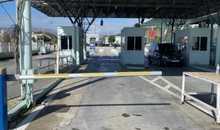
Arrest of Greek customs officer 'paralyzes' vehicle traffic at Qafë Botë
2025-07-03 09:28:41
After Tirana and Fier, the boxes are opened in Durrës today
2025-07-03 09:21:10
Enea Mihaj transfers to the USA, will play as an opponent of Messi and Uzun
2025-07-03 09:10:04

Foreign exchange, the rate at which foreign currencies are sold and bought
2025-07-03 08:53:50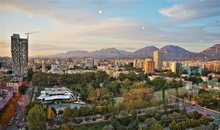
Index, Albania has the worst quality of life in Europe
2025-07-03 08:48:10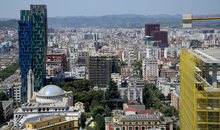
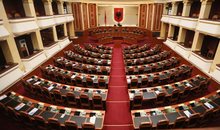
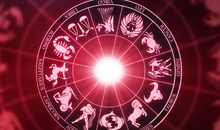
Horoscope, what do the stars have in store for you today?
2025-07-03 08:17:05
Clear weather and high temperatures, here's the forecast for this Thursday
2025-07-03 08:00:37
Posta e mëngjesit/ Me 2 rreshta: Çfarë pati rëndësi dje në Shqipëri
2025-07-03 07:46:48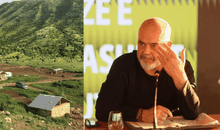




Lufta në Gaza/ Pse Netanyahu do vetëm një armëpushim 60-ditor, jo të përhershëm?
2025-07-02 21:56:08
US suspends some military aid to Ukraine
2025-07-02 21:40:55



Methadone shortage, users return to heroin: We steal to buy it
2025-07-02 20:57:35
Government enters oil market, Rama: New price for consumers
2025-07-02 20:43:30
WHO calls for 50% price hike for tobacco, alcohol and sugary drinks
2025-07-02 20:41:53





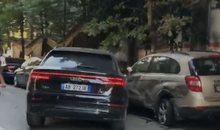
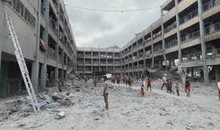
Israel agrees to 60-day ceasefire in Gaza, but many unanswered questions remain
2025-07-02 18:35:27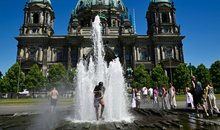
The weather in Germany is going "crazy", temperatures reach 40°C
2025-07-02 18:22:21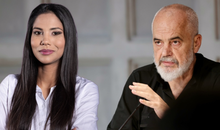

"Fast & Furious" in the former Block, police chase an Audi Q8, 4 cars collide
2025-07-02 17:59:25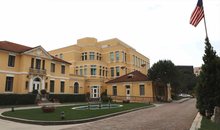
"Birth on a tourist visa? US Embassy warns Albanians: This is prohibited!"
2025-07-02 17:48:16
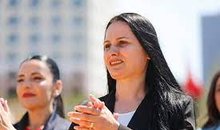

BIRN: Fier recount reveals vote trafficking within open political party lists
2025-07-02 16:57:19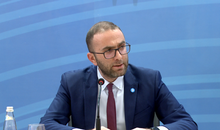

CEO and former director of 'Bankers Petroleum' arrested in Fier
2025-07-02 16:40:42
Car hits two tourists on a motorcycle in Fushe Arrëz, one of them dies
2025-07-02 16:33:23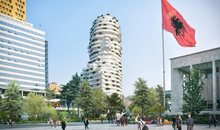


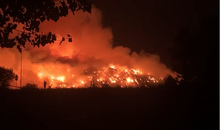
Fire at the Elbasan Incinerator Landfill, Prosecution Launches Investigations
2025-07-02 15:34:54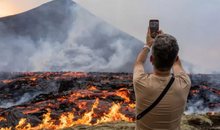
What you need to know if you travel to a country with active volcanoes
2025-07-02 15:33:03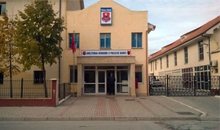
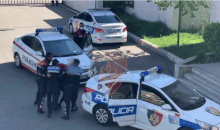

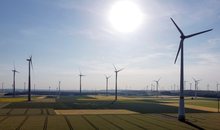
EU proposes 90% reduction in greenhouse gases by 2040
2025-07-02 14:50:23
Europe is burning from the heat / Italy and France are on maximum alert
2025-07-02 14:36:52
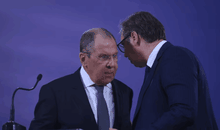
Moscow's contradictory statements: Is the friendship with Vučić breaking down?
2025-07-02 14:21:05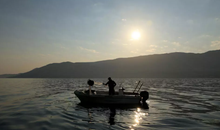
'I lost my battle': Sea warming is killing fishing in Albania
2025-07-02 14:08:35
Sekretet kimike që ndihmojnë në mbajtjen e mjaltit të freskët për kaq gjatë
2025-07-02 14:01:26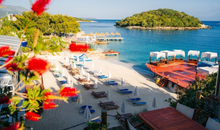
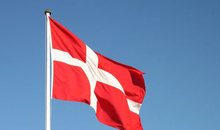
Denmark makes historic decision to make military service mandatory for women
2025-07-02 13:44:33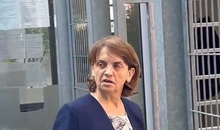
The appeal of the GJKKO leaves former judge Pajtime Fetahu in prison
2025-07-02 13:30:20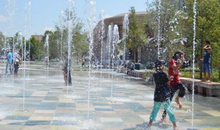
Productivity losses could reduce GDP by 1.3% as a result of extreme heat
2025-07-02 13:21:04
He abused his minor daughter, Zamir Meta is left in prison
2025-07-02 13:04:04

Waste burning in Elbasan, Alizoti: They are poisoning people and stealing money
2025-07-02 12:48:39
Civil disobedience continues in Serbia, dozens of people detained
2025-07-02 12:40:32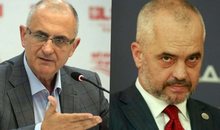
Rama's government was born under the sign of garbage and will end like this
2025-07-02 12:28:09
Water prices increase in the municipalities of the Elbasan region
2025-07-02 12:13:38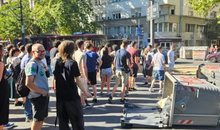
Civil disobedience continues in Serbia, what is happening in Belgrade?
2025-07-02 12:07:44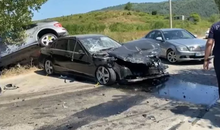
Serious accident in Thumanë, one dead, 3 injured
2025-07-02 11:54:42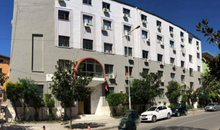
Durrës Court suspends the director of Pre-University Education from duty
2025-07-02 11:49:27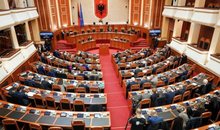
Plenary session on Thursday, what is expected to be discussed
2025-07-02 11:36:43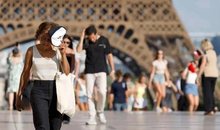
Europe is burning from heat waves/ What is the 'thermal dome' phenomenon?
2025-07-02 11:26:25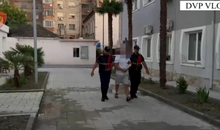
Wanted by Italy for murder, 45-year-old arrested in Vlora
2025-07-02 11:19:31
Fire situation, 28 fires reported in 24 hours, 2 still active
2025-07-02 11:13:20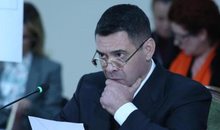
"Buka" file, preliminary hearing for Ahmetaj postponed to July 17
2025-07-02 11:03:30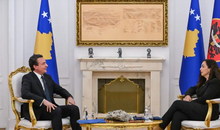
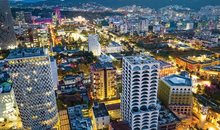

Baçi: Belinda Balluku and Ceno Klosi, the most dangerous "gangs" in Fier
2025-07-02 10:32:09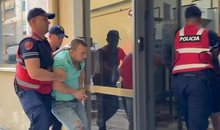
Zamir Meta, suspected of sexually abusing his daughter, arrives in court
2025-07-02 10:21:33
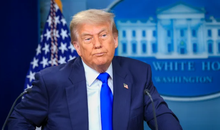
Trump: Israel has agreed to a 60-day ceasefire in Gaza
2025-07-02 10:01:55
Fire continues at Elbasan landfill
2025-07-02 09:51:13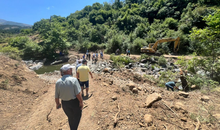

Dates to note during July, important events will occur
2025-07-02 09:31:45
The hearing for Jorgo Goro's claim is postponed
2025-07-02 09:24:19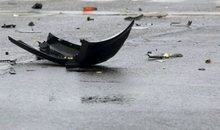

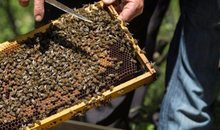

Foreign exchange, the rate at which foreign currencies are sold and bought
2025-07-02 08:42:31
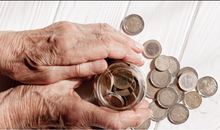
52% of pensioners did not receive full pension in 2024
2025-07-02 08:27:18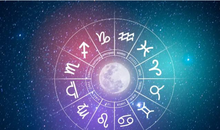
Horoscope, what do the stars have in store for you today?
2025-07-02 08:13:36